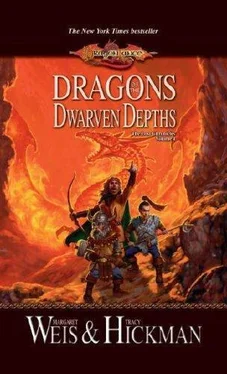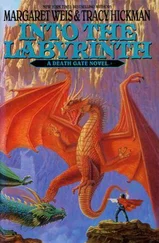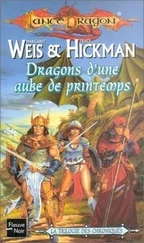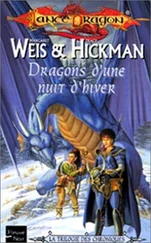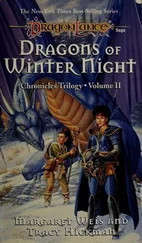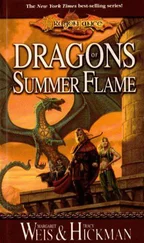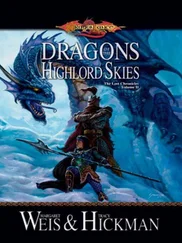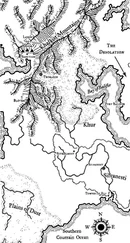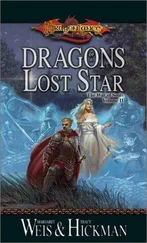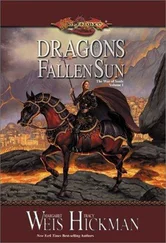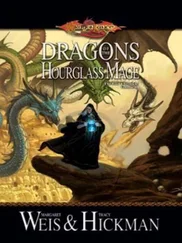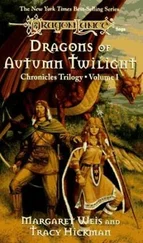Margaret Weis - Dragons of The Dwarven Depths
Здесь есть возможность читать онлайн «Margaret Weis - Dragons of The Dwarven Depths» весь текст электронной книги совершенно бесплатно (целиком полную версию без сокращений). В некоторых случаях можно слушать аудио, скачать через торрент в формате fb2 и присутствует краткое содержание. ISBN: , Жанр: Фэнтези, на английском языке. Описание произведения, (предисловие) а так же отзывы посетителей доступны на портале библиотеки ЛибКат.
- Название:Dragons of The Dwarven Depths
- Автор:
- Жанр:
- Год:неизвестен
- ISBN:0-7869-4099-9
- Рейтинг книги:5 / 5. Голосов: 1
-
Избранное:Добавить в избранное
- Отзывы:
-
Ваша оценка:
- 100
- 1
- 2
- 3
- 4
- 5
Dragons of The Dwarven Depths: краткое содержание, описание и аннотация
Предлагаем к чтению аннотацию, описание, краткое содержание или предисловие (зависит от того, что написал сам автор книги «Dragons of The Dwarven Depths»). Если вы не нашли необходимую информацию о книге — напишите в комментариях, мы постараемся отыскать её.
Dragons of The Dwarven Depths — читать онлайн бесплатно полную книгу (весь текст) целиком
Ниже представлен текст книги, разбитый по страницам. Система сохранения места последней прочитанной страницы, позволяет с удобством читать онлайн бесплатно книгу «Dragons of The Dwarven Depths», без необходимости каждый раз заново искать на чём Вы остановились. Поставьте закладку, и сможете в любой момент перейти на страницу, на которой закончили чтение.
Интервал:
Закладка:
Tanis was well aware that Flint and all his people had nursed a three-hundred-year-old grudge against Thorbardin. He’d been hoping that the dwarves of Thorbardin would be more generous. After all, they’d won the war—if one could call it winning—when thousands on both sides had perished. But by the dark looks and muttered remarks, neither side was prepared to forget, much less forgive.
Not all the insults were aimed at the outsiders, nor were the rocks, one of which struck one of the soldier’s shoulders between his shoulder blades. The rock wasn’t very big, and it bounced harmlessly off the soldier’s breastplate. The Hylar soldiers were irate, however, and wanted to chase after the malefactors, who had vanished into the throng.
Arman reminded his men sternly that the Council would be in session that afternoon, and they must not arrive late. The soldiers grumbled but did as they were ordered. Tanis had the feeling this was just an excuse. Looking around at the gathering crowd of dwarves and seeing the grim expressions on their faces, he saw what Arman Kharas was seeing—his forces were outnumbered, and the crowd was in an ugly mood. What was astonishing and troubling was that these dwarves were not Theiwar.
“Trouble beneath the mountain,” said Flint, and he couldn’t help but look a bit smug.
“Find out what’s going on,” Tanis said. “It might affect what the Council decides to do with us.” Flint didn’t feel all that inclined to have a conversation with Arman Kharas, but he conceded that Tanis was right. They needed to know something of the political situation of Thorbardin before they faced the Council. He waited to speak to Arman until they were all inside the wagon and it was trundling along the tracks, heading still deeper into the mountain’s interior. Flint was not used to prying information out of people. He was uncomfortable and didn’t know where to start. Fortunately, Arman was given to conversation, and he turned to Flint.
“For some the war has not ended,” he stated, and Flint could not tell whether the dwarf meant this as some sort of apology or an accusation.
“For some it will never end,” Flint replied dourly, “not so long as those beneath the mountain live in safety and comfort, while my people work the land and fight off goblins and ogres to defend it.”
Arman snorted. “Do you think we live well here?”
“Don’t you?” Flint challenged, and he gestured at the farm fields, snug homes and businesses gliding past them.
“This looks prosperous,” said Arman, “but what you do not see are the hundreds of miners who have no work because the iron mines have closed, or rather,” he added, “you saw them—those who threw the rocks at us.”
“The mines closed!” Flint was astonished. “Why? Are they played out?”
“Oh, we have iron ore aplenty,” said Arman, “just no one to buy it. If every dwarf who lived in Thorbardin needed ten swords or fourteen kettles or thirty-six stew pots our iron mongers would have business enough, but no one does. The owners of the mines could not pay the miners. Dwarves who have no work cannot pay their butchers, who in turn cannot pay their landlords, who cannot pay the farmers…”
“Our children are being killed by dragons, goblins, and lizard-men,” Flint said heatedly. “War rages above, and you complain about not being able to pay a butcher’s bill! But there, I’ve said more than I should. The half-elf will tell our tale when he’s before the Council.” Arman’s eyes flickered. “Tell me more about what is happening on the surface.” Flint shook his head.
“There will be war down here as well,” Arman said, when it was apparent the dwarf would not elaborate. “You saw those dwarves back there. You heard the names they called us. The Council still rules in Thorbardin, but the people are growing more and more discontented. A year ago, no Theiwar would have dared attack a Hylar. Now with the increasing unrest among the population, our enemies, the Theiwar and the Daegar, view us as weak and vulnerable.” Arman was silent, then he said abruptly. “You asked me what sign I was given that my destiny is near. I will tell you. I believe it was the opening of Northgate.”
“What about the Helm of Grallen?” Flint asked.
Arman’s face darkened. “I don’t know. I don’t quite understand that part.” He shrugged, and his expression cleared. “Still, I have faith in Kharas. He will guide me. My time is at hand.” Flint squirmed in his seat. He felt unaccountably guilty about his dream, as though he and Reorx were somehow plotting behind Arman’s back.
“Don’t be an old fool,” Flint scolded himself.
Arman Kharas fell silent. He wore a rapt look, dreaming of his destiny.
The companions continued the journey along the Road of the Thanes, all of them absorbed in their own thoughts and dreams.
Caramon hung on to the side of the wagon that was swaying perilously back and forth along the track, thinking of Tika, berating himself for letting her go off alone, praying she was all right, and knowing he would blame himself if anything had happened to her. He hoped she would forgive him, hoped she did understand, as she had told him.
“Raistlin needs me, Tika,” Caramon said silently over and over, his big hand gripping the side of the wagon. “I can’t leave him.”
Raistlin was thinking over the strange events that had happened to him in Skullcap. How had he known his way around a place he’d never been? Why had he called Caramon by a strange name that wasn’t entirely strange? Why had the wraiths protected him? He had no idea, yet there was the nagging feeling deep within him that he did know why. The feeling was unpleasant and uncomfortable, and it irritated him, like the feeling you have when you need to recall something vitally important, and it is on the tip of your mind, yet you cannot remember.
“The Master bids us…” the wraiths had said to him. What Master?
“Not my master,” Raistlin said firmly. “No matter what he does for me, no one will ever be my master!”
Sturm was thinking of the Hammer of Kharas and its long and glorious history. Originally known as the Hammer of Honor, it had been forged centuries ago in memory of the hammer of Reorx and had been given by the dwarves to the humans of Ergoth as a sign of peace. At one point, the great elven ruler, Kith-Kanan, was said to have had the Hammer in his possession. Always it had been used for peaceful and honorable purposes, never to shed blood. Thus it was that Huma Dragonbane had sought out the Hammer, giving it into the hands of a famous dwarf smith and bidding him forge the first dragonlances. Armed with these, blessed by the gods, Huma had been able to drive the Queen of Darkness and her evil dragons back into the Abyss. After that, the Hammer had disappeared, only to reappear again in the hands of a hero worthy of it—Kharas, who had used the Hammer to try to forge peace, but had failed and now the Hammer was lost.
“If only I could be the one to bring it back to the knights!” said Sturm to himself. “I would stand before the Lord of the Rose and I would say, ‘Take this, my lord, and use it to forge the blessed dragonlances!’ The Hammer would help the knights defeat evil, and it would absolve me of my guilt, making up for all the evil that I have done.”
Tasslehoff’s thoughts were less easy to relate, being rather like a tipsy bee buzzing erratically from one flower to another. They went something like this:
“Caramon needn’t hang on to me so tightly. (Indignant) I’m not to going to fall out. Oh! Look at that! (Excited) I’ll have a closer look. No, I guess I won’t. (Wistful) There it goes. See there! More dwarves! Hullo dwarves! My name is Tasslehoff Burrfoot. Was that a turnip? (Thrilled) Arman, was that a turnip they chunked at you? It certainly is a funny color for a turnip. (Intrigued) I never saw a black one before. Mind if I look at it? Well, you needn’t be so cross. (Hurt) It didn’t hit you that hard. Whew, boy! Would you look at that ! (Excited)…” Tanis’s thoughts were on Riverwind and the refugees, wondering if they had survived the draconian attack, wondering if they were on their way to Thorbardin. If they were, they were counting on him to find them a safe haven here in the dwarven kingdom.
Читать дальшеИнтервал:
Закладка:
Похожие книги на «Dragons of The Dwarven Depths»
Представляем Вашему вниманию похожие книги на «Dragons of The Dwarven Depths» списком для выбора. Мы отобрали схожую по названию и смыслу литературу в надежде предоставить читателям больше вариантов отыскать новые, интересные, ещё непрочитанные произведения.
Обсуждение, отзывы о книге «Dragons of The Dwarven Depths» и просто собственные мнения читателей. Оставьте ваши комментарии, напишите, что Вы думаете о произведении, его смысле или главных героях. Укажите что конкретно понравилось, а что нет, и почему Вы так считаете.
